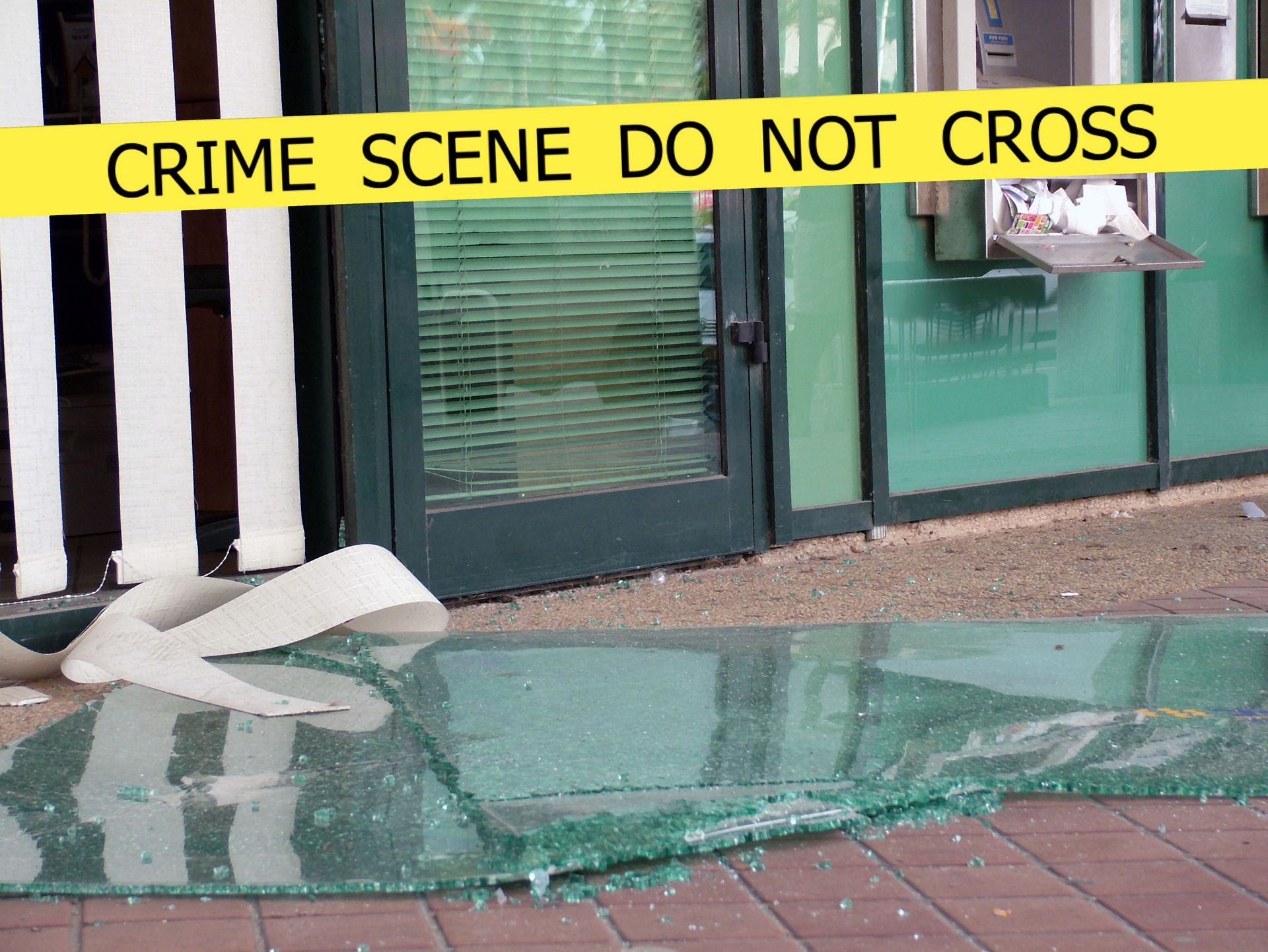Crime Scene Cleanup: What Really Happens After the Investigators Leave
Crime scene cleanup is a critical yet often overlooked part of the criminal justice process. It restores safety and normalcy after tragedy, helping families and communities begin to heal. The work involves removing biohazards and contaminants, safeguarding public health, and allowing people to move forward. According to CBS News, the FBI reports that in 2024, the United States saw an average of one violent crime every 25.9 seconds. With such frequency, the need for a professional crime scene cleanup business has never been greater for maintaining public safety and emotional recovery.
The Purpose and Process of Crime Scene Cleanup
A crime scene cleanup business bridges the gap between the end of an investigation and the return to normal life. Cleanup professionals are responsible for safely removing blood, bodily fluids, and other potentially infectious materials. Their work prevents disease transmission and transforms a traumatic site back into a safe space. It’s both a technical and emotional service—one that signals closure for those affected and helps restore peace of mind.
These services must comply with OSHA regulations for biohazard handling and disposal. Each crime scene cleanup business employs trained professionals equipped to manage hazardous materials with precision. The goal is to ensure health, safety, and legal compliance while providing families with relief after traumatic events. Cleanup differs from investigation—investigators collect evidence, while the cleanup business restores the environment to a safe, livable condition.
Misconceptions and Scene Variations
Many assume crime scene cleanup is just mopping up blood, but it’s far more intricate. A crime scene cleanup business must assess hazards, decontaminate surfaces, and restore spaces to full safety standards. Every scene is unique—homicides, suicides, accidents, and drug-related incidents require different cleanup strategies. Even unattended deaths or industrial accidents can create complex contamination issues. The professionals working in a crime scene cleanup business face both physical challenges and emotional demands while ensuring every surface is fully decontaminated.
How the Cleanup Process Works
Assessment and Planning
The first step in any crime scene cleanup business is a thorough assessment to determine the extent of contamination. Technicians document hazards, identify biohazard zones, and design a structured plan for cleaning. This planning phase often involves collaboration with law enforcement to confirm that evidence collection is complete. Proper assessment ensures safety, efficiency, and compliance with health standards.
Decontamination and Sanitization
Once assessment is complete, the cleanup begins. Professionals use hospital-grade disinfectants, HEPA vacuums, and enzymatic cleaners to remove and neutralize contaminants. The best crime scene cleanup business uses industry-approved methods to address visible and hidden contamination. Floors, walls, furniture, and HVAC systems are all inspected and sanitized. Each pass through the affected area brings the environment closer to a fully restored and safe state.
Waste Disposal and Documentation
Proper disposal of contaminated waste is a crucial part of any crime scene cleanup business. All hazardous materials are carefully sealed, labeled, and transported to certified facilities. Detailed documentation ensures every item removed from the site follows regulatory guidelines. Maintaining records also helps the cleanup business demonstrate compliance with state and federal health laws. This meticulous process guarantees safety for clients and workers alike.
Restoration and Final Inspection
After decontamination, the restoration phase begins. A reputable crime scene cleanup business replaces damaged structures, neutralizes odors, and restores the environment to its pre-incident condition. Surfaces are refinished, paint is refreshed, and the space is made habitable again. Once restoration is complete, supervisors conduct a final inspection to confirm all safety protocols have been met. This final check marks the successful conclusion of the cleanup process and reassures families that their home or property is safe once more.
Tools, Equipment, and Technology
Crime scene cleanup requires precision, discipline, and advanced equipment. Professionals wear protective suits, gloves, respirators, and face shields to prevent exposure. Industrial-strength cleaning agents approved by OSHA and the EPA are used for complete sanitation. Each crime scene cleanup business relies on specialized equipment such as HEPA vacuums, air scrubbers, and UV-C sterilization tools to eliminate pathogens and odors. Digital mapping software helps document progress and verify no contaminated area is missed. Regular maintenance and equipment calibration are vital for safety and efficiency.
Challenges Faced by Cleanup Professionals
Emotional Demands
Working for a crime scene cleanup business is emotionally demanding. Technicians often encounter distressing environments that require empathy and professionalism. Exposure to trauma can lead to compassion fatigue, so many employers offer counseling and stress management programs. The emotional resilience of cleanup professionals allows them to continue serving clients compassionately, even under the most difficult circumstances.
Health and Safety Risks
Technicians in a crime scene cleanup business face numerous risks, including exposure to bloodborne pathogens and chemical hazards. Adhering to strict safety standards and wearing personal protective equipment is non-negotiable. Comprehensive training in decontamination techniques, vaccinations, and safety drills helps prevent illness or injury. The constant focus on prevention ensures both worker safety and public health.
Unforeseen Complications and Cooperation
Every cleanup presents unforeseen challenges—hidden contamination, structural damage, or lingering odors. A reliable crime scene cleanup business must adapt quickly, developing on-the-spot strategies for unexpected problems. Effective communication with property owners, health inspectors, and law enforcement promotes efficiency and compliance. This cooperation ensures that cleanup proceeds seamlessly from start to finish, with minimal disruption to affected families.
Emotional and Social Impact
For Families
For grieving families, hiring a compassionate crime scene cleanup business is an important step toward healing. The presence of professionals handling cleanup discreetly provides comfort and reassurance. By removing the physical reminders of trauma, the cleanup business helps restore peace to the environment and dignity to those affected. Each completed project represents a small but meaningful part of emotional recovery.
For Communities
Crime scenes can leave lasting effects on entire neighborhoods. A professional crime scene cleanup business restores safety, cleanliness, and public confidence. When biohazards are removed, communities feel secure again knowing their environment is free from danger. These efforts extend beyond individual clients—they help rebuild community trust and reduce the stigma associated with crime-affected areas. In this way, every cleanup contributes to a stronger, healthier community.
Support and Resources
Many cleanup professionals connect clients with additional resources such as grief counseling and trauma recovery programs. A thoughtful crime scene cleanup business goes beyond surface cleaning to support holistic recovery. Partnerships with mental health professionals, victim advocates, and social services ensure that emotional and psychological needs are also met. This compassionate approach helps families and neighborhoods move forward after tragedy.
The Industry’s Future and Emerging Trends
Training and Standards
Training and certification form the foundation of any reputable crime scene cleanup business. Professionals must complete courses in biohazard handling, safety compliance, and trauma sensitivity. Continuing education keeps workers updated on the latest technology and techniques. High training standards help the cleanup business maintain credibility and uphold client trust across every project.
Innovation and Technology
Technological advancements continue to reshape the crime scene cleanup business. AI-driven detection tools, UV sterilization lights, and 3D mapping software are improving accuracy and reducing exposure risks. Automation assists with repetitive tasks, while remote monitoring technology allows supervisors to verify safety in real time. These innovations enhance precision, efficiency, and overall job safety for cleanup professionals.
Industry Growth and Opportunities
The growing need for biohazard remediation has created strong demand for professionals in this field. Each crime scene cleanup business offers varied career paths, from field technicians to operations managers. As public awareness increases, more individuals are drawn to the meaningful work of restoring safety and dignity after trauma. The industry’s expansion reflects a society that values both scientific precision and compassion in equal measure.
Crime scene cleanup is far more than a technical task—it’s an act of service that restores safety, dignity, and peace. Every crime scene cleanup business plays a vital role in helping families and communities move forward after tragedy. From advanced cleaning technologies to compassionate client care, these businesses uphold the highest standards of safety and professionalism. As innovation and sustainability continue to shape the industry, one thing remains constant: the unwavering commitment to helping people heal, rebuild, and reclaim their sense of security after loss. If you need our services, reach out to Proremedy SWFL today.





Share On: